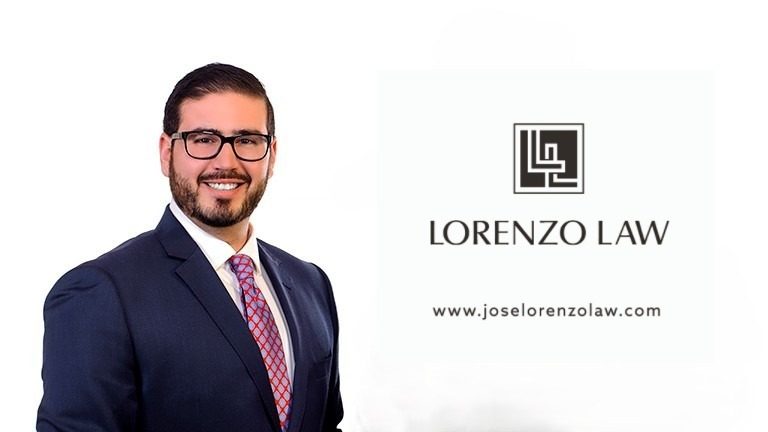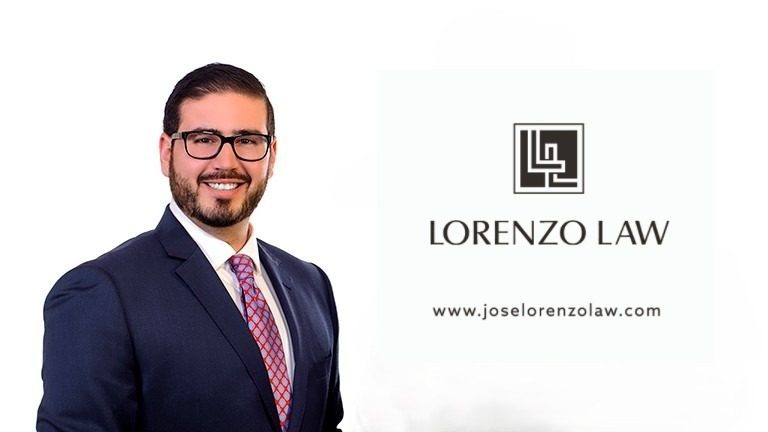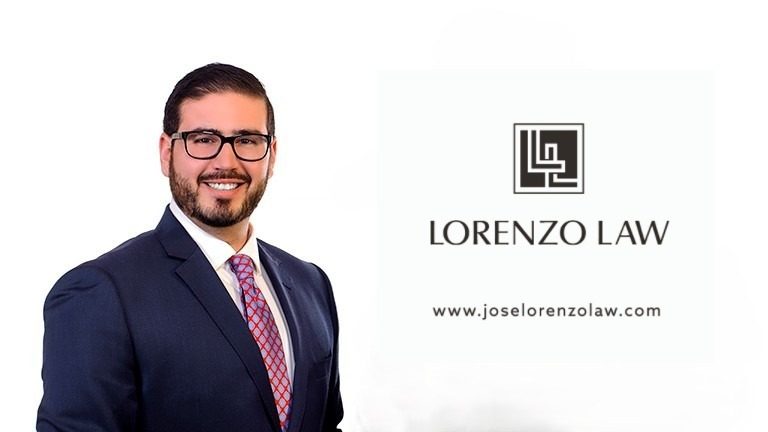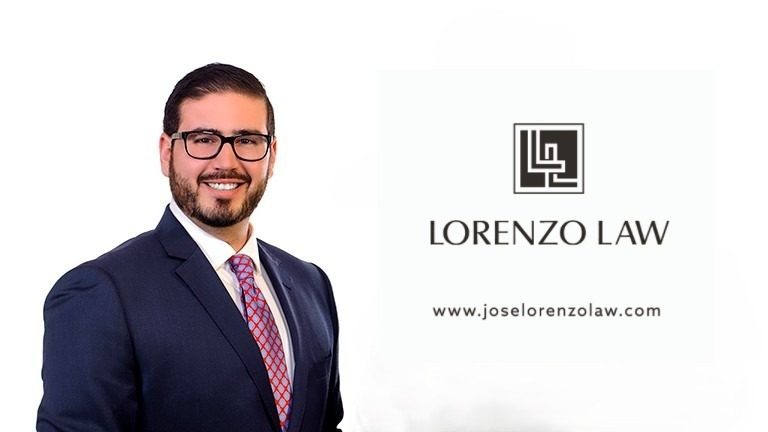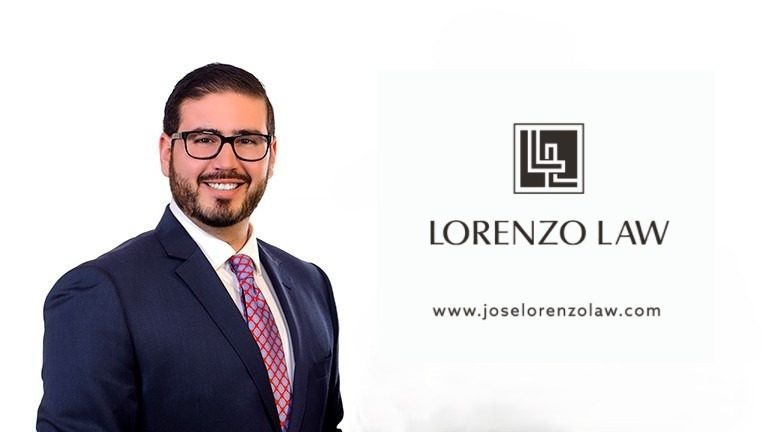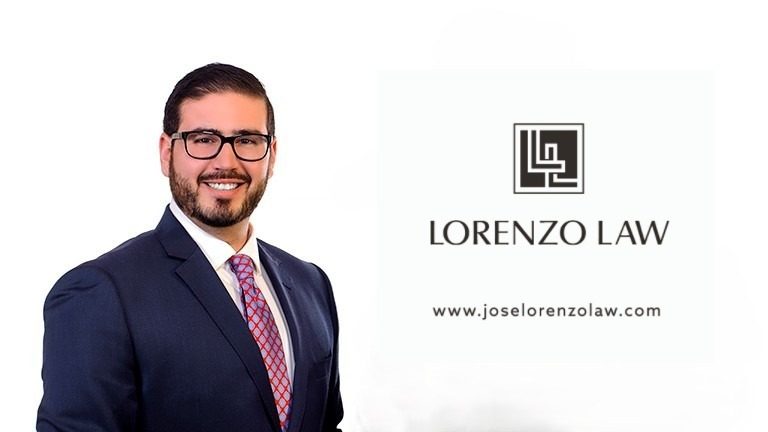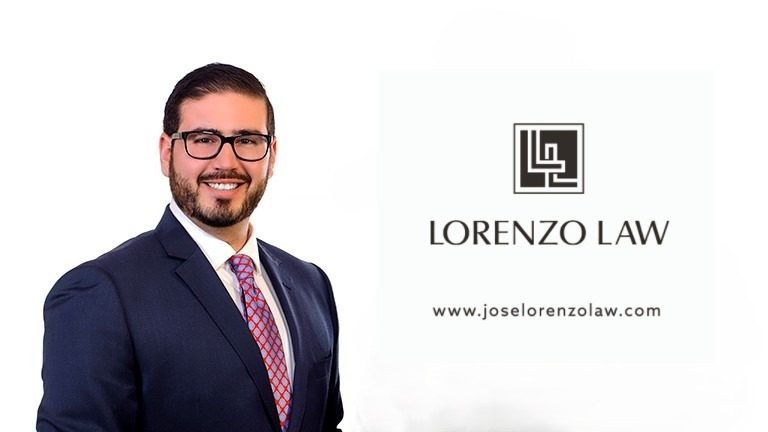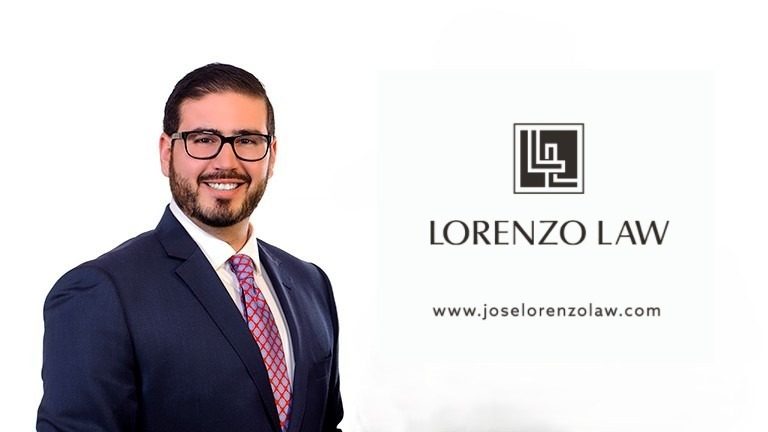Florida Land Trust: Guide to Asset Protection & Planning

When it comes to protecting real estate assets in Florida, property owners face unique challenges that demand specialized estate planning strategies.
A Florida Land Trust offers powerful advantages for privacy, asset protection, and estate management that few other legal structures can match.
This comprehensive guide explains everything you need to know about setting up a trust in Florida, with a focus on Florida Land Trusts and how they compare to other types of trusts in Florida used for property ownership and estate planning.
What Is a Florida Land Trust?
A Florida Land Trust is a specialized legal arrangement in which real property is held by a trustee for the benefit of one or more beneficiaries.
Unlike a traditional living trust in Florida, which may hold many types of assets, a land trust focuses exclusively on real estate holdings.
Under Florida living trust laws, the property title is transferred to the trustee, while the beneficial interest remains with the beneficiary, who retains full control and decision-making authority over the property.
This structure—governed by Florida trust law and specifically Florida Statute 689.071—has become a powerful tool for real estate investors, homeowners, and business owners seeking privacy and protection.
A Florida Land Trust functions as a revocable trust in Florida by default, allowing the grantor to modify or terminate it at any time. This flexibility sets it apart from an irrevocable trust in Florida, which cannot be easily changed once created.
Working with an experienced Florida estate planning attorney or Florida probate attorney ensures your land trust complies with all Florida trustee requirements and fully leverages the benefits available under Florida law.
Recognized for decades under Florida probate law, the land trust remains one of the most effective estate planning structures for managing and transferring real estate.
Why Florida Land Trusts Matter for Property Owners
Establishing a Florida Land Trust solves several critical challenges that Florida property owners face every day.
Privacy stands as one of the primary advantages. When you create a trust in Florida for your real estate, the public property records reflect only the trustee’s name, not yours.
This layer of privacy shields you from predatory lawsuits, unwanted solicitations, and public scrutiny of your holdings.
Asset protection is another key reason to form a trust in Florida. While not as comprehensive as an asset protection trust in Florida or a domestic asset protection trust, a land trust still provides an extra layer of insulation between you and potential creditors.
It also integrates easily with other estate planning tools to build a more comprehensive protection strategy.
The Florida probate process can create serious obstacles when transferring real estate. Properties titled in an individual’s name must pass through probate court, resulting in delays, added expenses, and public disclosure of your estate.
A properly structured Florida Land Trust avoids probate entirely, allowing for a seamless transfer to beneficiaries upon your death.
This probate avoidance benefit mirrors the advantages of a revocable living trust in Florida while offering additional real estate-specific protections.
For real estate investors or those managing multiple properties, land trusts also simplify property management and financing.
Each property can be held in a separate trust, isolating liability and maintaining a clear organizational structure.
This strategy is especially beneficial for rental property owners and real estate developers seeking efficient compliance with Florida probate law and ownership requirements.
Who Benefits from Florida Land Trusts (And Who Doesn’t)
Florida Land Trusts serve specific types of property owners exceptionally well. Real estate investors with multiple properties often use land trusts to compartmentalize their holdings and maintain privacy across their portfolio.
By placing each property in its own trust, investors avoid the “deep pocket” appearance that often attracts unnecessary litigation.
Privacy-conscious homeowners also gain significant advantages. High-profile individuals, business owners, and anyone wishing to keep their real estate holdings confidential find land trusts invaluable.
A skilled Florida Land Trust attorney structures these arrangements to ensure maximum privacy while maintaining full legal compliance.
Families focused on estate planning frequently use land trusts alongside other tools such as a revocable trust in Florida or an irrevocable trust in Florida.
The land trust manages real property, while other trusts handle financial accounts, investments, and personal assets. This creates a comprehensive estate plan that complies with Florida living trust laws and Florida probate requirements.
However, land trusts are not suitable for everyone. Those seeking the highest level of asset protection should consider forming a statutory asset protection trust in Florida instead.
While land trusts offer privacy and probate avoidance, they provide limited creditor protection compared to more specialized asset protection vehicles.
Property owners facing significant debt or pending litigation should be cautious. Establishing a trust in Florida after legal problems have already surfaced may be viewed as a fraudulent transfer.
To avoid that risk, always consult a Florida estate planning attorney before creating or transferring assets into a trust.
Individuals engaged in Medicaid planning may find that a Medicaid Asset Protection Trust in Florida or an irrevocable living trust in Florida better serves their goals.
The five-year Medicaid lookback period requires careful, proactive planning that a revocable land trust alone cannot satisfy.
When and Where Florida Land Trusts Apply
Florida Land Trusts apply specifically to real property located within the State of Florida.
Whether you own residential real estate, commercial property, vacant land, or agricultural acreage, Florida trust law allows land trust structures for all types of real estate.
The Florida Land Trust Statute (Fla. Stat. § 689.071) provides the legal foundation for these arrangements across all 67 Florida counties.
Timing plays a critical role when considering a Florida Land Trust. The best time to establish one is when acquiring the property or well before any legal disputes arise.
Creating a trust in Florida at the time of purchase simplifies the process since the deed transfers directly to the trustee, avoiding the need for a later conveyance.
Existing property owners may also transfer real estate into a Florida Land Trust at any point. However, doing so requires executing a new deed, which can sometimes trigger due-on-sale clauses in mortgage agreements or require lender consent.
Consulting a Florida Land Trust attorney ensures compliance with all Florida trust statutes and loan requirements before proceeding.
It’s important to note that the geographic scope of Florida living trust laws limits these trusts to property located in Florida.
Real estate located in another state cannot be placed into a Florida Land Trust. Each state has its own version of trust law, and property must be held in a trust recognized by the jurisdiction where it is situated.
For Florida residents who own real estate in multiple states, separate trust structures must be established for each location.
Nonetheless, land trusts work especially well in Florida probate situations.
Since the Florida probate process can take six months to two years for real estate to pass through court, a Florida Land Trust eliminates these delays—allowing for an immediate transfer to beneficiaries according to the trust agreement.
How Florida Land Trusts Work: The Basic Process
Understanding how a Florida Land Trust operates begins with its three-party structure:
- The Grantor (Settlor): Creates the trust and transfers real property into it.
- The Trustee: Holds legal title and manages the property according to the terms of the trust.
- The Beneficiary: Holds the equitable interest and enjoys all benefits of ownership, including income, use, and control.
Under Florida living trust laws, the Florida Land Trust Agreement defines each party’s rights, powers, and responsibilities.
In most cases, the trustee’s role is largely passive—holding title and signing documents as directed—while the beneficiary retains complete control over decisions involving the property.
This differs sharply from other types of trusts in Florida, where trustees often play an active role in managing or distributing assets.
A Florida Land Trust Agreement typically includes key components such as:
- A legal description of the property
- The designation of the trustee
- Identification of the beneficiary or beneficiaries
- The powers and duties of each party
- Distribution provisions and termination conditions
An experienced Florida estate planning attorney drafts these agreements to ensure full compliance with Florida trustee requirements and Florida trust law standards.
The property transfer into the trust occurs through a warranty deed or quitclaim deed, naming the trustee as grantee with language indicating they hold title as trustee of the Florida Land Trust.
This deed is recorded in the public records, but the trust agreement itself remains private and is never publicly filed.
Through the trust agreement, the beneficiary maintains full authority to direct the trustee to sell, mortgage, lease, or otherwise manage the property.
This high degree of control distinguishes land trusts from more restrictive arrangements like an irrevocable trust in Florida, where the grantor surrenders control once the trust is established.
Upon the grantor’s death, the Florida Land Trust Agreement identifies successor beneficiaries who automatically receive ownership without court involvement.
The property transfers seamlessly according to the trust terms—bypassing the Florida probate process entirely.
This automatic transfer of ownership is one of the most valuable benefits of forming a trust in Florida for real estate holdings, ensuring privacy, continuity, and efficiency in estate administration.
Common Applications and Use Cases for Florida Land Trusts
Florida Land Trusts provide versatile solutions for property owners, investors, and families across multiple real estate scenarios:
- Rental Property Owners:
- Use Florida Land Trusts to place each rental property into its own entity.
- Isolates liability — one property lawsuit won’t affect others.
- A Florida probate attorney structures the trust for maximum protection and simplicity.
- Real Estate Investors:
- Employ land trusts for distressed property purchases and wholesaling transactions.
- Maintain privacy during negotiations and transfer beneficial interests without new deeds.
- Ideal for Florida’s competitive real estate markets.
- Privacy-Focused Homeowners:
- Combine Florida homestead protection with a land trust for enhanced privacy.
- Shields ownership details from public property records.
- Creates a dual layer of statutory protection and contractual confidentiality.
- Estate Planning Integration:
- A Florida estate planning attorney may pair a revocable living trust in Florida with separate land trusts for real property.
- Offers detailed control over assets while maintaining a unified Florida estate plan.
- Business Owners:
- Hold commercial real estate in land trusts separate from business operations.
- Lease property back to the business to isolate liability.
- Simplifies business sales without transferring real estate.
- Family Property Transfers:
- Parents retain control as beneficiaries and name children as successor beneficiaries.
- Avoids gift tax complications and simplifies transfers.
- Unlike a Lady Bird trust in Florida, no deed recording reveals future ownership.
- Multi-Generational & Dynasty Planning:
- Combine land trusts with Florida dynasty trusts for long-term wealth preservation.
- Land trusts hold specific properties, while the dynasty trust manages and protects assets over generations.
Critical Terms Every Florida Land Trust Owner Should Know
Understanding these essential terms helps ensure your Florida Land Trust remains compliant and effective under Florida trust law:
- Grantor / Settlor:
- The person who creates the Florida Land Trust and transfers property into it.
- Usually serves as the initial beneficiary and retains control under Florida living trust laws in revocable arrangements.
- Trustee:
- Holds legal title to the property and acts per the trust agreement.
- Must comply with Florida trustee requirements and act in good faith.
- Can be a Florida trust company, attorney, or family member for privacy and cost efficiency.
- Beneficiary:
- Holds beneficial interest and enjoys full ownership benefits—income, use, and control.
- May assign beneficial interests without recording a new deed, preserving privacy during transfers.
- Beneficial Interest:
- Represents equitable ownership of trust property under Florida trust law.
- Classified as personal property, not real property—allowing flexible estate planning strategies.
- Power of Direction:
- The beneficiary’s authority to direct trustee actions involving management, sale, financing, or leasing.
- Ensures the beneficiary retains control while the trustee holds title.
- A Florida land trust attorney drafts this provision for maximum flexibility.
- Revocable Trust:
- A trust in Florida that can be modified or terminated by the grantor.
- Most Florida land trusts are revocable trusts, offering adaptability compared to an irrevocable trust in Florida.
- Title Insurance:
- Protects against defects in property title when creating a trust in Florida.
- Some title companies provide land trust endorsements without issuing a new full policy, lowering costs.
- Nominee:
- A person or entity that holds property on behalf of another.
- In land trusts, the trustee acts as nominee for the beneficiary, distinguishing it from other trusts in Florida where trustees have discretion.
- Assignment of Beneficial Interest:
- Transfers beneficial ownership in trust property without recording a deed.
- Maintains privacy while transferring true ownership.
- A Florida probate attorney ensures compliance with state law.
- Succession Certificate:
- Identifies successor beneficiaries after the original beneficiary’s death.
- Enables property transfer without Florida probate, illustrating one of the strongest benefits of the Florida land trust structure.
Debunking Florida Land Trust Myths
Myth 1: Florida Land Trusts provide complete asset protection.
While land trusts offer strong privacy benefits, they do not provide full creditor protection like an asset protection trust in Florida. Creditors may still reach the beneficial interest in a revocable land trust. True protection requires irrevocable structures and strategic planning with a Florida estate planning attorney.
Myth 2: Land trusts eliminate all taxes.
A Florida Land Trust is tax-neutral under Florida trust laws. The IRS treats most revocable land trusts as disregarded entities, meaning income, deductions, and gains flow to the beneficiary. All property, income, and capital gains taxes remain the beneficiary’s responsibility.
Myth 3: Any trustee will suffice.
Choosing an inexperienced trustee can create serious issues. Although Florida trustee requirements are minimal, trustees must understand their legal duties. A Florida land trust attorney helps select qualified trustees and avoid mistakes—especially when considering out-of-state trustees.
Myth 4: Land trusts prevent foreclosure.
A land trust does not protect property from mortgage foreclosure. Lenders’ rights survive trust transfers, and some mortgages require lender consent before forming a trust in Florida with encumbered property.
Myth 5: Recording the trust agreement is required.
Under Florida living trust laws, land trust agreements remain private. Only the deed is recorded. Recording the agreement defeats privacy and is not required under Florida trust law.
Myth 6: Land trusts replace full estate planning.
Land trusts are only one component of a comprehensive plan. Complete Florida estate planning often includes a revocable living trust, durable powers of attorney, healthcare directives, and specialized options like a special needs trust or Medicaid asset protection trust in Florida.
Myth 7: Lady Bird deeds and land trusts are the same.
A Florida Lady Bird deed (enhanced life estate deed) reserves a life estate and transfers automatically at death. A Florida Land Trust, by contrast, offers ongoing privacy, flexibility, and probate avoidance. Both can be used together for optimal results.
Myth 8: All Florida trust companies handle land trusts.
Many trust companies manage investment or living trusts—not land trusts. It’s best to use an attorney or specialized Florida land trust company with experience in Florida land trust structures.
Myth 9: Land trusts complicate financing.
Most lenders today understand Florida land trusts. A Florida land trust attorney can coordinate with lenders so financing remains smooth, often allowing borrowers to obtain loans in their own names while holding property in trust.
Myth 10: Once created, land trusts are permanent.
Most Florida land trusts are revocable, meaning the grantor can terminate or amend them at any time. Upon termination, the property reverts to individual ownership—unlike irrevocable trusts in Florida, which are difficult to unwind.
Types of Trust Structures: Comparing Your Florida Options
Understanding the main types of trusts in Florida helps property owners and families choose the right tools for asset protection, tax efficiency, and estate planning.
Each structure serves a distinct purpose within strategies crafted by a Florida estate planning attorney.
Revocable Living Trusts: Maximum Flexibility
A revocable living trust in Florida provides flexibility for managing and distributing assets during life and after death. Unlike Florida land trusts, which focus solely on real estate, revocable trusts can hold bank accounts, investments, personal property, and real estate.
- Avoids the Florida probate process for included assets.
- Allows the grantor to modify terms, change beneficiaries, or revoke the trust at any time.
- Offers no asset protection, since the grantor retains full control.
Irrevocable Trusts: Asset Protection and Tax Planning
An irrevocable trust in Florida trades flexibility for asset protection and potential tax advantages. Once created, it generally cannot be altered without beneficiary consent or court approval under Florida irrevocable trust law.
- Asset protection trusts in Florida shield assets from creditors when established well in advance.
- Medicaid asset protection trusts in Florida preserve home equity while helping qualify for long-term care assistance.
- Special needs trusts in Florida support disabled beneficiaries without affecting eligibility for government benefits.
Lady Bird Trusts (Enhanced Life Estate Deeds)
The Florida Lady Bird trust—also called an enhanced life estate deed—reserves life estate rights while naming remainder beneficiaries who automatically receive the property upon death.
- Allows the grantor to sell, mortgage, or revoke without beneficiary consent.
- Provides probate avoidance similar to a Florida land trust while maintaining homestead protection.
- However, remainder interests become public when recorded, reducing privacy.
A Florida probate attorney can advise whether a Lady Bird deed or land trust is the better fit.
Dynasty Trusts: Multi-Generational Wealth Preservation
A dynasty trust in Florida provides long-term wealth protection across generations. These irrevocable trusts integrate generation-skipping tax planning and advanced estate protection strategies.
- Ideal for families focused on multi-generational planning.
- Require guidance from a Florida estate planning attorney due to complex tax and compliance rules.
Community Property Trusts
Newly recognized under Florida trust law, Florida community property trusts benefit married couples by converting separate property into community property for tax efficiency.
- Complements existing Florida estate planning and asset protection structures.
- May provide a double step-up in basis upon the death of either spouse.
When Florida Land Trusts Work Best for Real Estate Holdings
Here’s your section condensed, polished, and SEO-optimized while preserving all original meaning and essential Florida-specific keywords:
Florida Land Trusts are most effective when privacy, probate avoidance, and simplified property transfers are the top priorities.
- Real Estate Investors:
- Ideal for owners with multiple properties—each held in a separate Florida Land Trust to isolate liability and maintain privacy.
- If litigation arises involving one property, other holdings remain protected from discovery or attachment.
- Commercial Real Estate:
- Businesses often lease property from their own land trust, separating operations from ownership.
- Enables smooth business sales without transferring real estate and property sales without disrupting business activity.
- Vacation or Family Properties:
- Multiple family members can share beneficial interests through a single Florida Land Trust.
- The trust agreement defines use schedules, maintenance duties, and future transfer terms—avoiding messy co-ownership.
- Estate Planning Integration:
- Works best when real estate forms a major part of the estate.
- The Florida Land Trust manages real property, while a revocable living trust in Florida handles other assets—creating a unified estate plan with property-specific benefits.
- High-Privacy Ownership:
- Essential for high-profile individuals, domestic violence survivors, or anyone needing anonymity.
- Only the trustee’s name appears in public records, fully protecting the beneficial owner’s identity.
Florida Legal Requirements for Land Trust Formation
Creating a Florida Land Trust requires compliance with Florida living trust laws and specific statutory formalities. The trust agreement must:
- Identify the property clearly
- Name the trustee and beneficiary
- Define powers, duties, and termination terms
While generic Florida living trust form templates exist, customized documents prepared by a Florida land trust attorney ensure compliance and address property-specific needs.
Trustee Requirements:
- Trustees must be competent adults or qualified entities such as Florida trust companies, banks, or attorneys.
- Trustees must accept appointment and acknowledge fiduciary duties under Florida trust law.
Deed & Recording Standards:
- The property must be transferred by warranty or quitclaim deed naming the trustee as grantee, specifying title is held in trust.
- Deeds must meet Florida recording requirements to ensure title companies and lenders recognize the structure.
- A Florida estate planning attorney coordinates proper drafting and recording.
Governing Statute:
- Florida Statute § 689.071 controls land trust creation and operation.
- It classifies beneficial interests as personal property and validates power of direction provisions giving beneficiaries control over trust property.
Revocable vs. Irrevocable Status:
- Most Florida land trusts are revocable, outside the Florida irrevocable trust law framework.
- Irrevocable versions may be used for asset protection or tax planning when the grantor surrenders control.
Probate and Privacy Treatment:
- Under Florida probate law, properly structured land trusts with successor beneficiaries avoid probate entirely.
- Only the deed is recorded publicly—the trust agreement remains private, preserving confidentiality.
- Coordination with title companies and lenders is essential, as they may request review copies for verification.
Essential Steps You Cannot Skip When Creating a Florida Land Trust
When forming a trust in Florida for real estate, certain steps are non-negotiable. Skipping any of these can cause title defects, insurance issues, or even trust failure.
- Draft a Legally Compliant Trust Agreement
- A precise Florida Land Trust Agreement is essential.
- Defective documents can create title problems and trigger litigation.
- A Florida land trust attorney ensures all provisions meet Florida trust laws and statutory requirements.
- Execute a Proper Deed to the Trustee
- The deed must list the grantor, name the trustee as grantee, describe the property, and include required trust language.
- Errors in deed drafting can result in uninsurable title defects.
- A Florida probate attorney should review and prepare all transfer documents.
- Record the Deed in the Correct County
- Recording in the county where the property is located finalizes the transfer.
- Unrecorded deeds fail to provide public notice and may not protect against later purchasers or liens.
- Florida has 67 county recording offices handling such filings.
- Notify the Property Insurance Company
- Ownership changes must be disclosed to maintain coverage.
- Policies should list the trustee as the named insured and note the beneficial owner.
- Failure to notify can result in claim denials.
- Address Existing Mortgages
- Review for due-on-sale clauses that may be triggered by the transfer.
- While federal law often protects revocable trusts, lender notification or consent is still best practice.
- A Florida land trust attorney coordinates with lenders to prevent loan acceleration.
- Obtain Title Insurance or Endorsements
- Title insurance verifies that the trustee receives clear title after transfer.
- Some title companies issue trust endorsements instead of new policies, lowering costs while preserving protection.
How Lorenzo Law Evaluates Florida Land Trust Opportunities
At Lorenzo Law, we conduct a thorough, client-specific analysis before recommending a Florida Land Trust. Our goal is to ensure every trust aligns with your financial, privacy, and estate planning objectives under Florida trust law.
- Asset Protection Goals:
We assess whether asset protection or privacy is the client’s primary goal. When maximum creditor protection is essential, we often recommend an asset protection trust in Florida or another irrevocable structure instead. Land trusts protect privacy but offer limited protection for revocable arrangements. - Estate Plan Integration:
We review the client’s entire Florida estate plan to ensure proper coordination. In many cases, a revocable living trust in Florida holds general assets while Florida land trusts manage specific real estate holdings—creating a cohesive, efficient plan. - Privacy Needs:
Privacy concerns significantly influence our recommendations. Clients who are public figures, business owners, or domestic violence survivors often benefit most from land trusts. When heightened privacy is necessary, we implement additional confidentiality measures beyond standard trust structures. - Mortgage and Financing Review:
We analyze each property’s loan status before forming a trust in Florida. Our attorneys review mortgage documents, coordinate with lenders, and secure necessary consents to prevent due-on-sale clause violations or loan acceleration. - Tax Coordination:
While Florida land trusts are generally tax-neutral, we collaborate with CPAs and financial advisors to align trust planning with broader income tax, estate tax, and basis adjustment strategies, ensuring all components work together efficiently. - Successor Planning:
We carefully structure successor beneficiary provisions to ensure smooth transitions without probate. Each Florida Land Trust Agreement includes detailed succession terms addressing incapacity, contingencies, and beneficiary changes. - Cost-Benefit Evaluation:
Every recommendation balances complexity, cost, and value. Simple ownership structures may use family trustees, while complex portfolios benefit from professional trustees or multi-entity arrangements. We provide transparent pricing and ongoing administration guidance to ensure long-term efficiency and value.
Understanding the Risks and Benefits of Florida Land Trusts
Florida Land Trusts provide powerful advantages when properly structured, but they also come with important limitations. Careful planning with a Florida land trust attorney ensures you maximize benefits while avoiding pitfalls.
Key Benefits of Florida Land Trusts
- Privacy Protection:
Only the trustee’s name appears in public property records, shielding the beneficial owner’s identity. This anonymity helps prevent frivolous lawsuits, predatory marketing, and unwanted public scrutiny. - Probate Avoidance:
Properties held in a Florida Land Trust transfer immediately to successor beneficiaries upon the owner’s death, bypassing probate. This seamless process avoids court delays, reduces costs, and maintains family privacy during estate transitions. - Simplified Transfers:
Beneficial interests can be reassigned without recording new deeds, allowing private, efficient property transfers between investors or family members. This feature is especially valuable for real estate investors managing multiple transactions. - Compartmentalization for Investors:
Holding each property in its own Florida Land Trust isolates liability. If one property faces litigation, others remain protected from discovery or attachment. - Estate Planning Flexibility:
Land trusts integrate easily with revocable living trusts in Florida, creating comprehensive and efficient estate administration that covers all assets—real estate and beyond.
Risks and Limitations to Consider
- Limited Asset Protection:
A revocable Florida Land Trust offers minimal creditor protection since the beneficial interest remains reachable by creditors. Those needing stronger safeguards should consider an asset protection trust in Florida or an irrevocable trust. - Mortgage Complications:
When property is encumbered, lenders may require consent, charge transfer fees, or even accelerate loans. Reviewing loan documents and coordinating with lenders before forming the trust prevents costly issues. - Homestead Protection Concerns:
Transferring a Florida homestead into a land trust requires careful planning to preserve homestead exemption rights. The beneficiary must generally reside on the property to maintain protection under Florida law. - Title Insurance and Financing Challenges:
Some title companies and lenders unfamiliar with land trusts may hesitate to proceed. Partnering with experienced Florida land trust attorneys and trusted professionals ensures smooth, compliant transactions. - Administrative Responsibilities:
Although minimal, trustees must sign documents for property transactions and coordinate with beneficiaries. This administrative step adds slight complexity compared to individual ownership but remains far simpler than managing an irrevocable trust in Florida.
What Florida Land Trusts Cost and How Long They Take
The cost of creating a trust in Florida varies depending on property complexity, the number of assets involved, and professional fees.
- Average Florida Land Trust Cost:
- Basic Florida land trust formation typically ranges from $1,500 to $3,500 when handled by a Florida land trust attorney.
- This fee usually includes trust agreement drafting, deed preparation, and the initial consultation.
- Complex or Multi-Property Trusts:
- Larger real estate portfolios, advanced succession planning, or coordination with broader estate planning strategies may increase costs.
- Many firms offer tiered pricing where per-property costs decrease as the number of properties increases.
- DIY Risks:
- Florida living trust form templates (costing $100–$500) may appear cheaper but often result in defective agreements, title defects, and litigation.
- Correcting these errors can far exceed the cost of proper legal formation.
- Additional Costs:
- Deed recording fees: $50–$150 per county
- Title insurance endorsements: $200–$500
- Lender fees: Vary depending on mortgage modifications or due-on-sale clause reviews
- These mirror standard real estate closing expenses.
- Ongoing Administration:
- Using a family member or attorney as trustee keeps annual costs minimal.
- Professional Florida trust companies may charge $500–$2,000+ annually, depending on property value and trust complexity.
- Typical Timeline (2–4 Weeks):
- Week 1: Consultation, information gathering, and draft preparation
- Week 2: Review and finalize trust documents
- Week 3: Deed execution and title coordination
- Week 4: Recording, insurance updates, and completion
- Rush Situations:
- Florida probate attorneys can often expedite land trust formation within 7–10 days when real estate closings demand quick action, though expedited fees may apply.
- Probate Comparison:
- The Florida probate process typically lasts 6 months to 2 years for real estate transfers—highlighting how Florida land trusts save significant time, cost, and administrative effort through proactive planning.
Choosing the Right Trust Structure for Your Florida Property
Selecting between a Florida Land Trust and other estate planning tools depends on your goals, asset types, and personal circumstances. Each structure offers unique benefits under Florida trust law.
- Primary Residence Owners:
- A Florida Land Trust provides privacy and probate avoidance while maintaining homestead protections.
- Ideal for those seeking anonymity and seamless estate transfers without court involvement.
- Real Estate Investors:
- Use separate Florida Land Trusts for each property to isolate liability and maintain portfolio privacy.
- Combine with a revocable living trust in Florida for non-real estate assets to achieve comprehensive estate planning.
- Business Owners:
- Hold commercial real estate in a land trust separate from the operating business.
- The company leases property from the trust, creating clean separation and flexibility for business or property sales.
- Asset Protection Concerns:
- Basic revocable land trusts offer limited protection from creditors.
- For higher-risk situations, consider an asset protection trust in Florida, irrevocable trust, or multi-entity strategy combining LLCs and trusts.
- Medicaid Planning:
- Requires an irrevocable Medicaid Asset Protection Trust in Florida.
- These trusts preserve assets and comply with Medicaid’s five-year lookback rule, unlike revocable land trusts.
- Families with Special Needs Members:
- Pair a special needs trust in Florida with a land trust for managing real estate.
- The special needs trust safeguards benefits, while the land trust manages real property interests.
- High Net Worth Individuals:
- Use a dynasty trust in Florida for multi-generational wealth preservation and tax efficiency.
- Combine with land trusts to manage specific Florida properties while leveraging generation-skipping tax advantages.
- Married Couples:
- Evaluate Florida community property trusts as a companion to land trust planning.
- These newer structures can offer unique tax benefits and basis step-up advantages for eligible couples.
Alternative Estate Planning Options to Consider
Alternative Estate Planning Options to ConsiderWhile Florida Land Trusts provide powerful privacy and probate benefits, several alternative estate planning tools may better serve different goals depending on your situation.
- Florida Lady Bird Deed (Enhanced Life Estate Deed):
- Offers probate avoidance similar to a land trust while allowing the grantor to retain control.
- Names remainder beneficiaries who automatically inherit at death.
- Provides flexibility but less privacy than a Florida Land Trust since remainder interests appear in public records.
- Revocable Living Trust in Florida:
- A revocable trust manages all estate assets—real estate, accounts, and investments—under one structure.
- Simplifies administration but sacrifices some property-specific flexibility provided by separate land trusts.
- Irrevocable Trusts in Florida:
- Designed for asset protection and tax planning, requiring the grantor to surrender control.
- Includes multiple specialized forms:
- Asset Protection Trust Florida: Shields assets from creditors when created well before legal issues arise.
- Domestic Asset Protection Trust Florida: Provides statutory protection under Florida law for qualified trusts.
- Special Needs Trust Florida: Supports disabled beneficiaries without disrupting Medicaid or SSI eligibility.
- Medicaid Asset Protection Trust Florida: Preserves home equity and helps qualify for long-term care coverage under Medicaid’s five-year lookback rule.
- Limited Liability Companies (LLCs):
- Offer liability protection and operational flexibility for real estate holdings.
- However, LLCs lack the privacy and probate avoidance benefits of a Florida Land Trust.
- Many investors combine both—holding LLC membership interests inside land trusts or living trusts.
- Transfer on Death Deeds:
- Used in some states for automatic transfer of property at death, but Florida does not currently recognize these deeds.
- Florida Land Trusts and Lady Bird deeds remain the preferred probate avoidance tools.
- Joint Ownership with Rights of Survivorship:
- Allows property to pass automatically to surviving owners.
- However, it exposes the property to each owner’s creditors and gives the last surviving owner full control over disposition, which may override the original intent.
Step-by-Step Process: Creating Your Florida Land Trust
Setting up a trust in florida for real property follows a systematic process ensuring legal compliance and optimal results. Following these steps with guidance from a florida land trust attorney creates enforceable and effective trust structures.
Step 1: Consultation and Goal Assessment Meet with a florida estate planning attorney to discuss your objectives, property details, and overall planning needs. This consultation clarifies whether a florida land trust serves your goals or if alternative structures better address your situation.
Step 2: Property Information Gathering Collect all property documents including current deeds, mortgage information, property surveys, title insurance policies, and homeowners association documents. This information allows your attorney to identify potential issues before proceeding.
Step 3: Trustee Selection Choose an appropriate trustee who understands the responsibilities and is willing to serve. Options include family members, attorneys, or professional florida trust companies. The trustee should be reliable and accessible for signing documents when needed.
Step 4: Beneficiary Designation Identify primary beneficiaries and successor beneficiaries who inherit beneficial interests upon your death. Consider contingent beneficiaries for scenarios where primary beneficiaries predecease you.
Step 5: Trust Agreement Drafting Your florida land trust attorney drafts a comprehensive trust agreement addressing property description, trustee powers, beneficiary rights, succession planning, and termination provisions. The agreement includes power of direction provisions ensuring beneficiaries retain control.
Step 6: Review and Revision Review the draft trust agreement carefully, asking questions about provisions you don’t understand. Request revisions addressing specific concerns or situations unique to your property or family dynamics.
Step 7: Lender Coordination If the property has an existing mortgage, your attorney contacts the lender to discuss the transfer and obtain necessary consent. Some lenders readily approve revocable trust transfers while others require specific procedures or documentation.
Step 8: Document Execution Sign the final trust agreement before a notary public. The trustee also signs, accepting the appointment and acknowledging fiduciary duties under trust law florida.
Step 9: Deed Preparation and Execution Your attorney prepares a deed transferring property from your individual name to the trustee. The deed identifies the trustee and references the trust name and date. Execute this deed with required witnessing and notarization under florida probate law standards.
Step 10: Title Company Coordination Work with the title company to obtain title insurance endorsements or new policies covering the trust transfer. Provide the title company with the trust agreement and executed deed.
Step 11: Recording File the executed deed with the county recorder’s office where the property is located. Pay recording fees and obtain recorded copies for your records.
Step 12: Insurance Notification Notify your property insurance company about the trust transfer. Request policy amendments naming the trustee as insured while noting beneficial ownership.
Step 13: Ongoing Administration Maintain records of the trust and provide copies to successor beneficiaries as appropriate. When property transactions occur, coordinate with the trustee to execute necessary documents.
Required Documents and Checklist for Florida Land Trusts
Successfully creating a trust in florida requires assembling specific documents and information. Use this comprehensive checklist when forming your florida land trust:
Property Documentation:
- Current recorded deed showing present ownership
- Property legal description
- Mortgage documents and loan numbers
- Property survey (if available)
- Title insurance policy
- Property tax records
- Homeowners association documents
- Liens or encumbrances information
Personal Information:
- Social Security numbers for all parties
- Current addresses for grantor, trustee, and beneficiaries
- Contact information for all parties
- Successor beneficiary identification
Financial Information:
- Property value estimates
- Outstanding mortgage balances
- Annual property tax amounts
- Insurance policy details
Legal Documents:
- Existing estate planning documents (wills, trusts, powers of attorney)
- Prenuptial or postnuptial agreements (if applicable)
- Business operating agreements (for commercial property)
Trust Formation Documents (Attorney Prepares):
- Land trust agreement
- Warranty or quitclaim deed to trustee
- Trustee acceptance document
- Beneficiary designation form
Post-Formation Documents:
- Recorded deed showing trust ownership
- Title insurance endorsement or policy
- Updated property insurance listing trustee
- Lender consent letter (if mortgage exists)
This checklist ensures all necessary information is available when meeting with your florida estate planning attorney. Complete documentation streamlines the process and prevents delays during trust formation.
Frequently Asked Questions About Florida Land Trusts
What is the difference between a Florida Land Trust and a Living Trust in Florida?
A Florida Land Trust holds real property only, focusing on privacy and simplified transfers. A living trust in Florida can hold bank accounts, investments, and personal property. Land trusts give beneficiaries full control with minimal trustee duties, while living trusts involve more active trustee management. Both can avoid the Florida probate process when properly structured with successor beneficiaries.
How much does it cost to create a trust in Florida for real estate?
Typical Florida land trust formation costs range from $1,500–$3,500 with a Florida land trust attorney. Additional expenses include recording fees ($50–$150), title insurance endorsements ($200–$500), and lender fees if applicable. While DIY Florida living trust forms cost less upfront, improper setup can create title or legal issues costing far more later.
Do I need a Florida Land Trust attorney or can I use forms?
Using generic Florida living trust forms is possible, but risky. A qualified Florida land trust attorney ensures full compliance, resolves mortgage or title complications, and integrates the trust into your estate plan. The cost of fixing a defective trust far exceeds doing it correctly the first time.
Will my Florida Land Trust protect assets from creditors?
A revocable Florida land trust offers limited protection. Because the beneficiary retains control, creditors can reach that beneficial interest. For stronger protection, consider an asset protection trust in Florida or an irrevocable trust in Florida. Land trusts are best for privacy and probate avoidance, not creditor defense.
Can I still get a mortgage on property in a Florida Land Trust?
Yes. Many lenders understand Florida land trusts and will finance property held in trust. Some require the beneficiary’s personal guarantee. Working with experienced Florida land trust attorneys and lenders familiar with trusts ensures smooth financing.
Does a Florida Land Trust avoid property taxes or affect homestead status?
No. A Florida land trust is tax-neutral. The beneficiary remains responsible for all property and income taxes. Homestead exemptions usually continue if the beneficiary occupies the home as a primary residence, but confirming with the county property appraiser is recommended under Florida living trust laws.
What happens to my Florida Land Trust when I die?
When a beneficiary dies, successor beneficiaries named in the trust agreement receive the beneficial interest immediately—without Florida probate. They present a death certificate and succession certificate to the trustee, who transfers ownership seamlessly and privately.
Can I have multiple properties in one Florida Land Trust?
Technically yes, but most Florida estate planning attorneys recommend separate land trusts for each property. Individual trusts improve liability isolation, sale flexibility, and estate administration. The small extra cost is justified by the added protection.
Is a Lady Bird Trust Florida the same as a Florida Land Trust?
No. A Florida Lady Bird Trust (or enhanced life estate deed) grants life estate rights with automatic transfer at death, while a Florida Land Trust keeps beneficial interests private. Both avoid probate, but only the land trust offers anonymity and flexible control.
How does a Florida Land Trust work with the Florida probate process?
A properly drafted Florida Land Trust completely avoids probate for the real property it holds. Upon the beneficiary’s death, ownership transfers instantly to successor beneficiaries under the trust agreement, saving time, reducing costs, and maintaining privacy under Florida probate law.
Get Expert Guidance for Your Florida Land Trust
Creating a Florida Land Trust is a significant legal step that benefits from skilled professional guidance.
Lorenzo Law specializes in Florida living trust laws and comprehensive estate planning strategies tailored specifically for Florida property owners.
Our experienced Florida estate planning attorney understand the challenges of protecting real estate assets in Florida.
Whether you own a single-family home, manage multiple investment properties, or operate commercial real estate, we craft customized trust solutions aligned with your goals.
We handle every stage of forming a trust in Florida—from initial consultation through deed preparation, recording, and ongoing administration guidance.
Our process ensures full compliance with Florida trust law while maximizing benefits for privacy, probate avoidance, and estate planning efficiency.
Don’t navigate Florida probate law alone or rely on generic Florida living trust forms that fail to address your unique needs. Professional legal representation prevents costly mistakes and ensures your land trust achieves its intended objectives.
Contact Lorenzo Law today to schedule a confidential consultation.
We’ll evaluate your property holdings, outline your planning options, and recommend whether a Florida Land Trust or another structure best serves your estate goals. Our team makes the process clear, efficient, and affordable.
Protect your privacy. Avoid probate. Gain peace of mind knowing your property transfers seamlessly to your loved ones.
Why Choose Lorenzo Law for Florida Trust Planning
Lorenzo Law brings extensive experience in Florida probate law, trust administration, and estate planning and is is a licensed in Florida.
I have assisted hundreds of Florida property owners with implementing Florida land trusts and comprehensive estate plans.
Our professional network includes experienced Florida trust companies, title insurers, and financial advisors, allowing us to deliver a complete service that integrates every aspect of trust creation and administration.
At Lorenzo Law, we offer transparent pricing with fixed-fee packages for standard Florida land trust formations.
More complex matters receive detailed estimates before engagement—so there are no surprise costs. Our mission is to make high-quality legal service accessible to all Florida property owners, regardless of estate size.
Important Legal Notice:
This article provides general information about Florida land trusts and Florida living trust laws for educational purposes only.
It does not constitute legal advice for your specific situation. Estate planning and trust law in Florida involve complex legal principles that require individualized review.
Always consult a qualified Florida estate planning attorney or Florida probate attorney before creating a trust or implementing an estate plan.
Laws evolve regularly, and this information may not reflect the most current updates in Florida trust law.
Call me now! Protect What Matters Most with a Florida Land Trust You Can Trust
At Lorenzo Law, we don’t just draft documents — we care about your peace of mind, your privacy, and your family’s future. Every Florida Land Trust we create reflects your goals, protects your real estate, and fits seamlessly into your Florida estate plan.
Whether you’re securing your primary residence, managing investment properties, or planning for future generations, our experienced Florida estate planning attorneys will guide you with clarity, integrity, and compassion.
Avoid the uncertainty of Florida probate, safeguard your privacy, and ensure your property transfers smoothly to your loved ones. We love what we do because it protects what you love most — your family, your home, and your legacy.
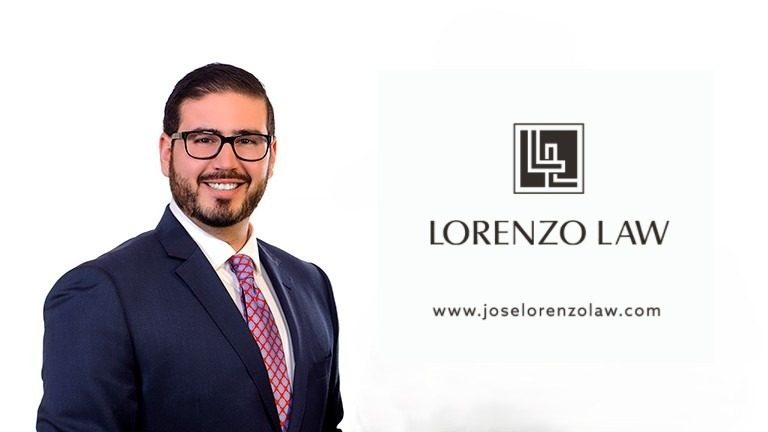
Contact Lorenzo Law today to schedule your consultation with a dedicated Florida probate and estate planning attorney and start your Florida land trust planning with confidence.


